Piolets d'Or Announces the "Significant Ascents" of 2023
This list of 68 climbs is effectively a "long list" used to select nominees of the prestigious alpine award.
A recovery from disaster gave Colin O'Brady the strength to cross Antarctica with muscle power alone on his 1000 mile solo journey - another world record.

Earlier this week, The Outdoor Journal announced a 5-part Alone Across Antarctica series featuring interviews from some of the greatest polar explorers of all time, including Captain Louis Rudd, Borge Ousland and Mike Horn. In this first instalment, multiple world record holder Colin O'Brady discusses his heroic journey from suffering in a hospital bed in Thailand to accomplishing awe-inspiring endurance expeditions around the globe.
On November third, 2018 Colin O’Brady set out to accomplish an “Impossible First” by becoming the first person to cross Antarctica on a solo, unsupported, human-powered journey.
Colin’s world record ambitions chartered a trifecta of challenges: Colin faced a 1000 mile journey alone, hauling all of his supplies, using only his muscle power.
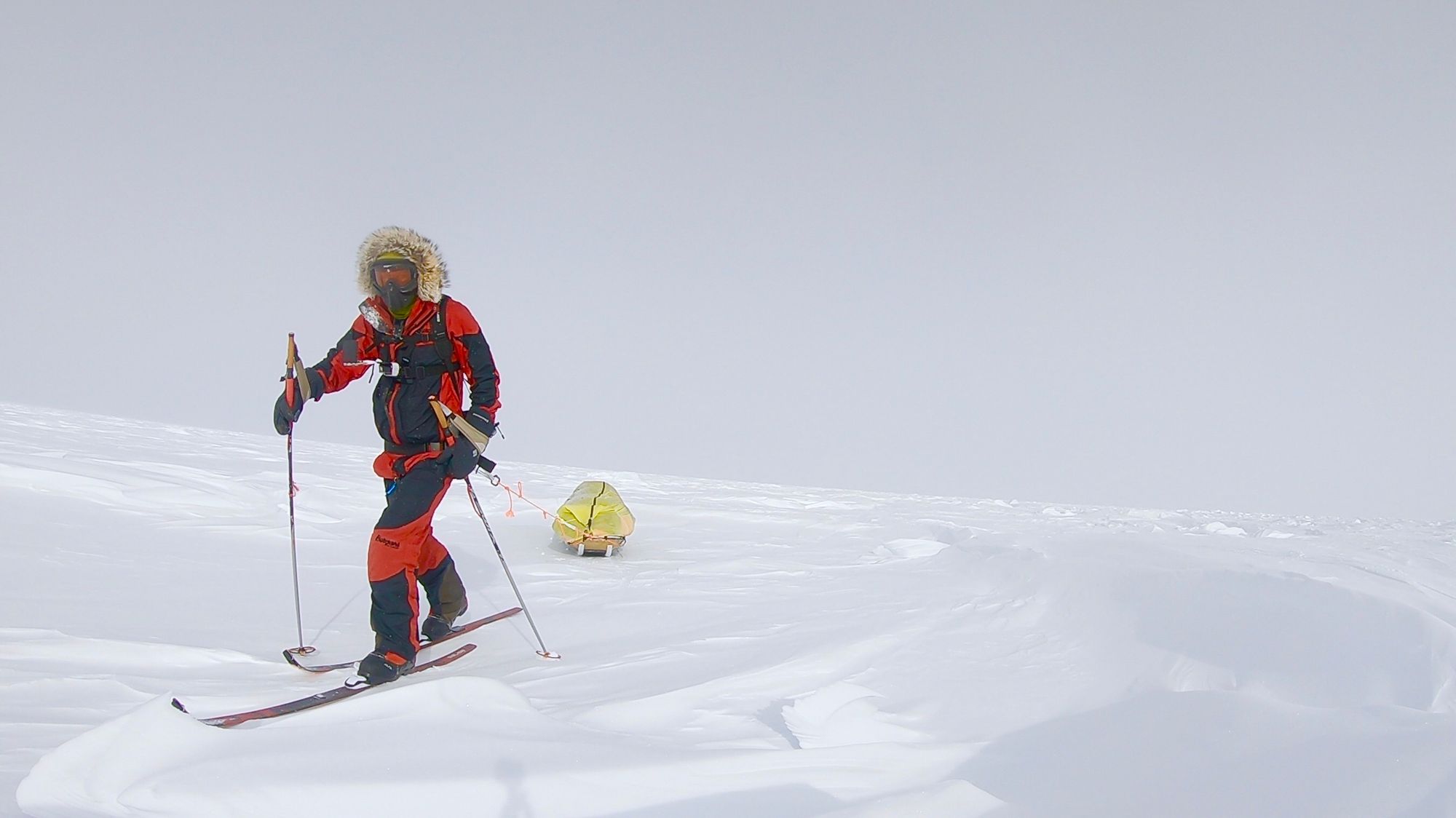
Colin was not the first person to ever reach the South Pole, nor complete a continental crossing of Antarctica - Norwegian Børge Ousland did so without resupply, but with the aid of wind power using a kite in 1997 - but Colin was the first to battle the hurricane-like winds and sub-freezing windchill under all three criteria - solo, unsupported and completely human-powered. In recent years, other explorers attempting this crossing have failed and even died.
As Colin puts it, “We called the project ‘The Impossible First’ because many people have attempted this project, it’s in the zeitgeist of the adventure community for a long time and there’s a lot been written on the fact that it may be impossible.”
[embed]http://www.youtube.com/watch?v=ZyhyIMWr7JM[/embed]
With no option for food or gear drop-offs, Colin loaded a nearly 400-pound pulk, or sled, with everything he needed to survive over the next 54 days.
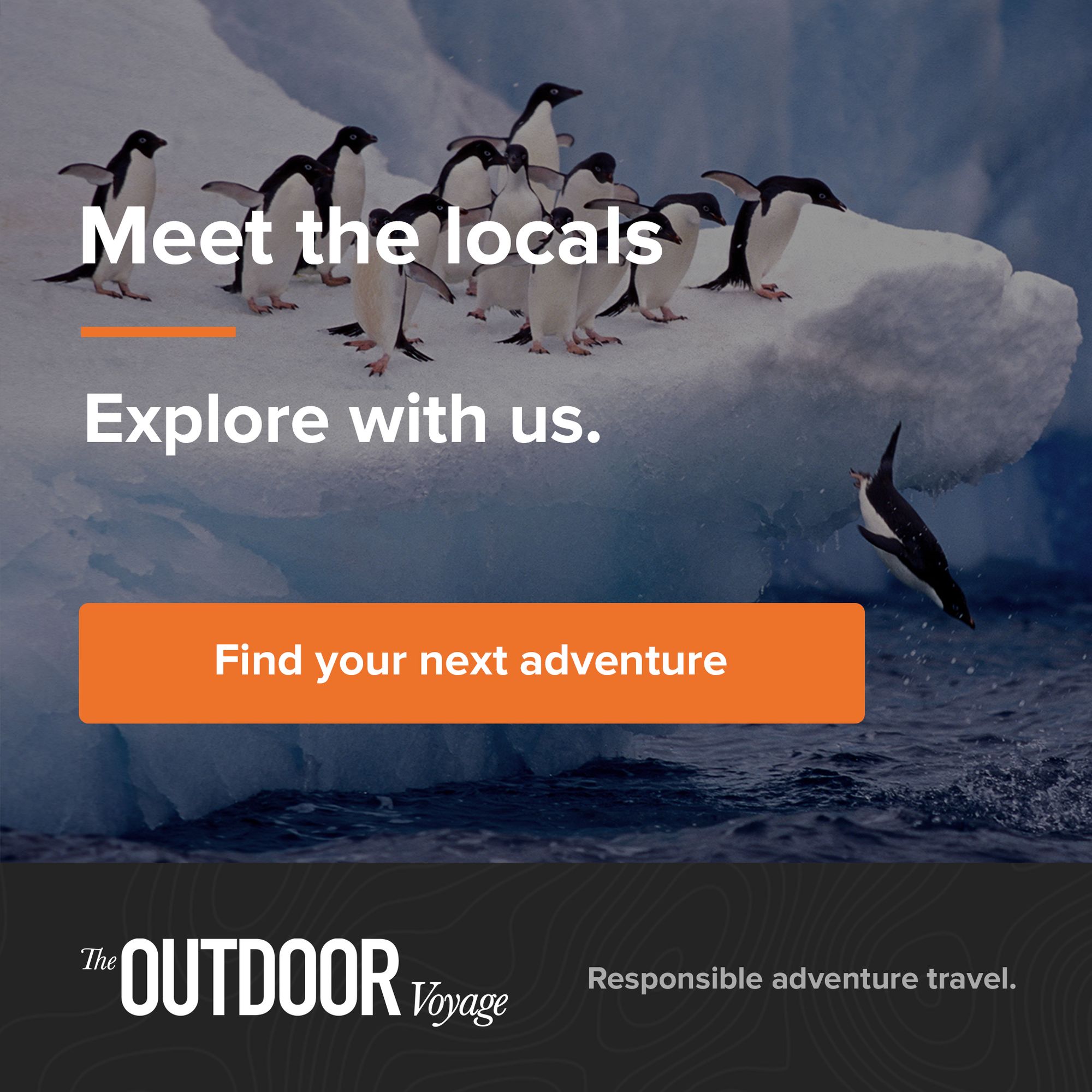
Simultaneously, British explorer, Captain Louis Rudd attempted the challenge under the same stipulations in what would become a two-month race across the continent.
If you run the calculus on the challenge, taking into account the 1000-mile distance from the Ronne Ice Shelf to the Ross Ice Shelf, Colin would need to haul his 400-pound pulk for 12 hours a day to reach an average of over 18 miles covered per day. As every pound mattered, Colin did not even pack a spare set of underwear. He completed the journey without taking a rest day, finishing the last 77 miles in 32 hours in an ultra-marathon finish.
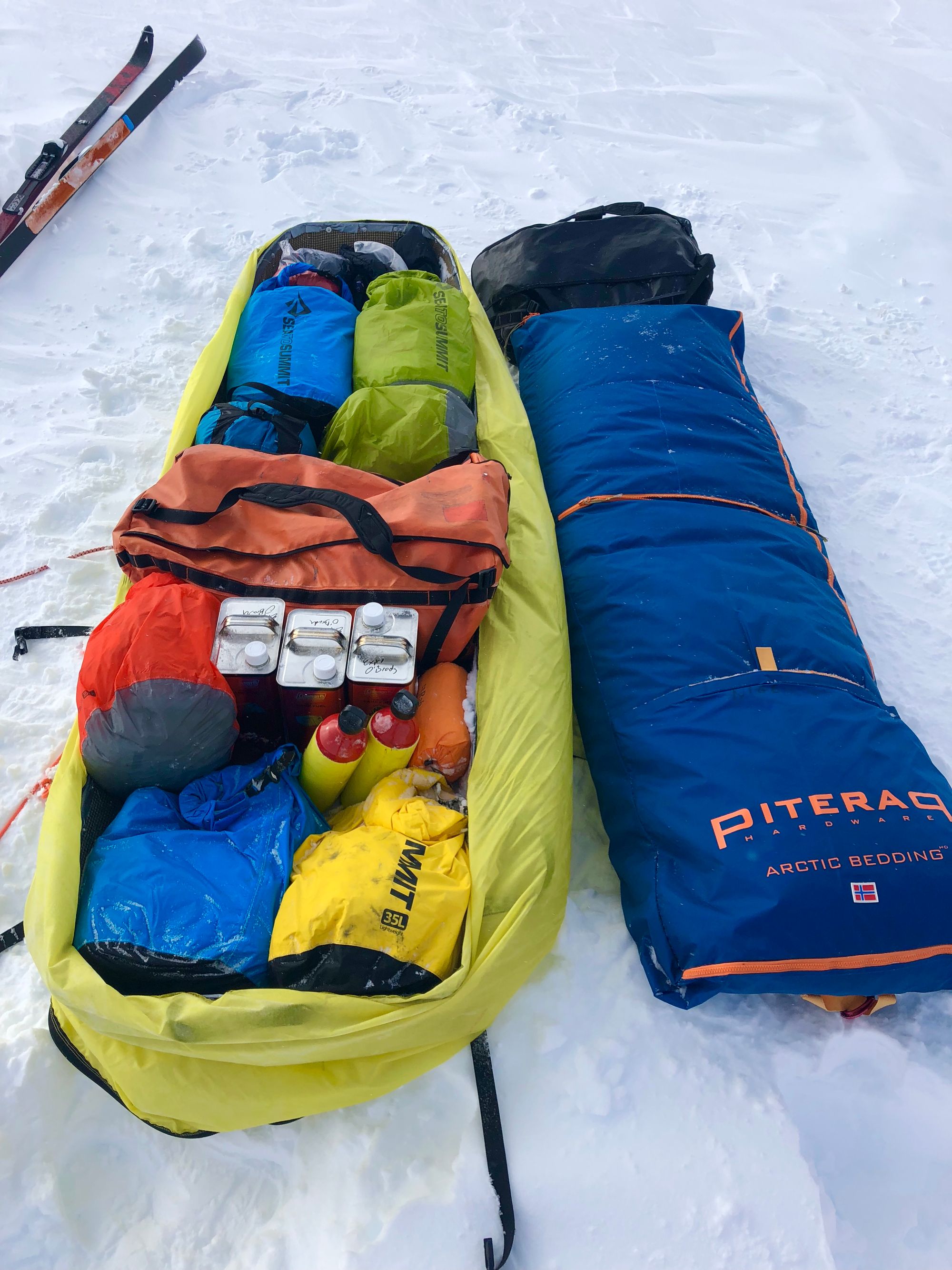
In the media coverage surrounding the race to the record books, some other accomplished explorers, as well as some desk-warrior journalists, have disparaged Colin’s claim to “The Impossible First,” citing discrepancies between his route selection and that of previous explorers, to which Colin replies, “I just smile and move on.”
The Outdoor Journal linked up with Colin to discuss his unbreakable mindset, how this challenge stacked up against his other world-records, and his place amongst the pantheon of polar explorers.
TOJ: Last time we connected, you were in the middle of the 50HP challenge of reaching the tallest point in all 50 states in just 21 days, a new world record. While you were attempting that record, did you have in the back of your mind this next goal of crossing Antarctica or did you get home and take a look at the world map to figure out what was next?
Colin O’Brady: No, I've been working on this project for well over a year so I knew for certain I was doing it when I did 50HP.
TOJ: How would you describe the difference between the 50HP challenge when you had a support team in your RV and people meeting up to run alongside you, bringing new energy to keep you going, versus enduring the remote isolation of Antarctica?
Colin O'Brady: Yeah, no pun intended, but certainly polar opposites of experiences for sure. We also thought it through that way, which was like, “Wow, we're going to do two projects this year, wouldn't it be fun to do one where there's a whole bunch of people and community around it, on the ground community involvement?” And then, of course, the exact contrast to that, which was Antarctica and the solo expedition.
“The bigger message is about putting that positivity out in the world and having that ripple effect, that inspiration for other folks following along.”
It sounds like you followed along both of those projects so you know the bigger message is certainly about putting that positivity out in the world and having that ripple effect, that inspiration for other folks following along. So in that way they're similar just in terms of the storytelling and the modalities of sharing that with young people and people all over the world.
They are also extremely different obviously, getting dropped off that day, November third, on the Ronne Ice Shelf. I'm watching the plane fly away and there's no one out there. It’s a whole different experience and definitely a huge wave of emotion to be in that solitude for 54 days and ride the storms, both external and internal inside the mind.
TOJ: You’ve accomplished multiple world records now. How does the Antarctica crossing rank amongst your other ones in terms of difficulty?
“I would say the Antarctica crossing, particularly because it's the world's first, is probably my proudest accomplishment.”
Colin O'Brady: They're all distinct in my mind. I would say the Antarctica crossing, particularly because it's the world's first, is probably my proudest accomplishment. There’s something about doing something that no one in history has ever done before that adds a degree of excitement to the challenge because of the unknown element. In terms of difficulty, people ask me, “What was harder, this or climbing Everest?” They're just so different from one another in that, with the polar exploration, you never have a day off. I never took a day off in 54 days. And so it was just this grinding repetition of harsh environment and long days pulling the sled.
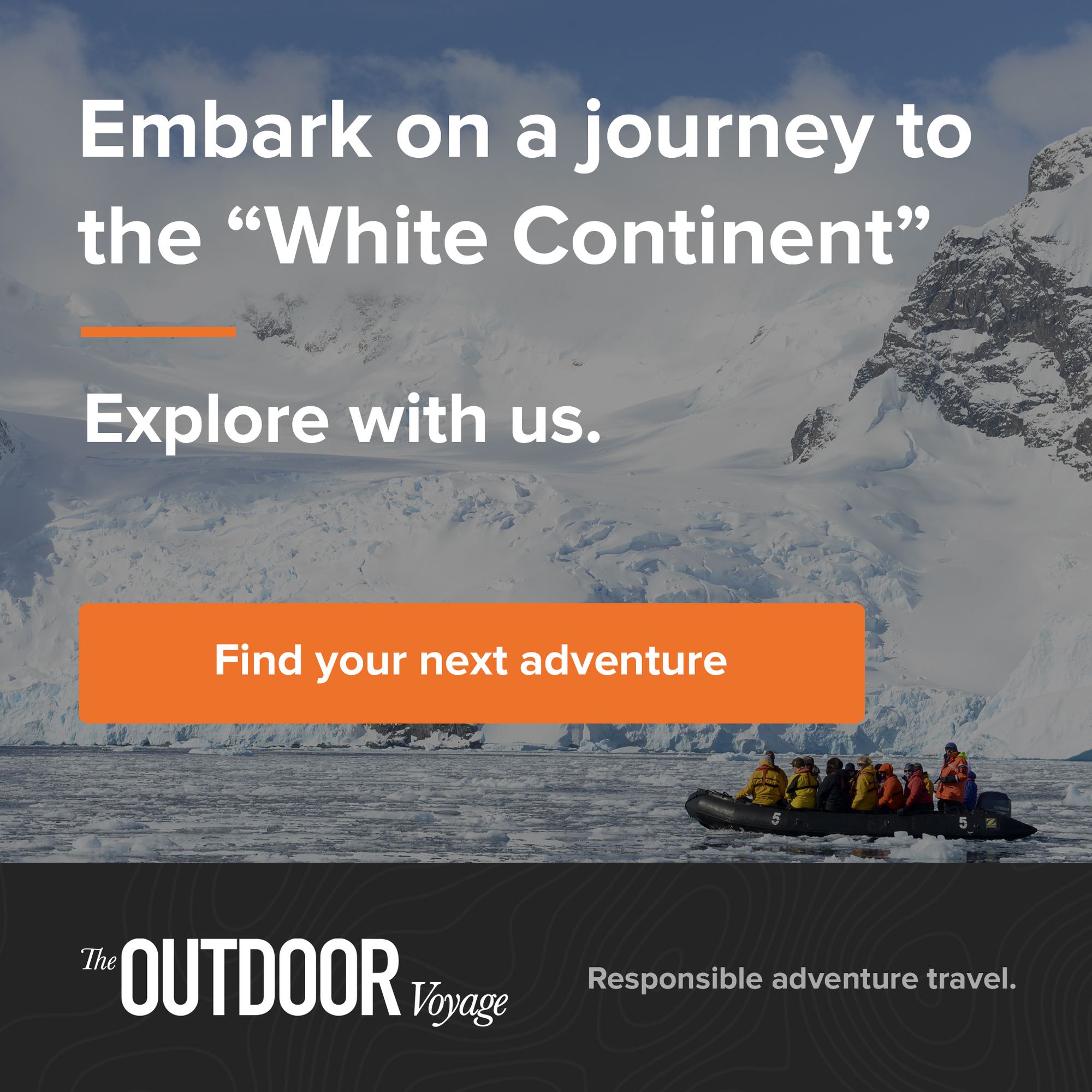
When you look at Himalayan mountaineering, the summit days, or some of those bigger days to the high altitude are extremely hard, potentially a lot harder than maybe the hardest day in the polar environment. But half the time you’re hanging out in the base camp with a cooking tent, when it’s not super cold and you're just resting for many days to acclimatize.
And then if you take the 50HP, for example, some of those mountains on the East coast were half a mile little walk ups. Going to the highest point in Florida wasn’t particularly hard, but those last eight days of that project to put in almost 200 miles on trails with 150,000 feet of climbing over 10 different locations in an RV with no sleep - that section was extraordinarily hard. So for me, I don't really rank them against each other in terms of which was the hardest. They are all different experiences and all that I'm really proud of.
TOJ: I know from watching your Youtube Channel that you did extensive physical training before the expedition, but how were you able to train or prepare yourself for navigating in a whiteout or putting your tent up in a 50 mile an hour wind?
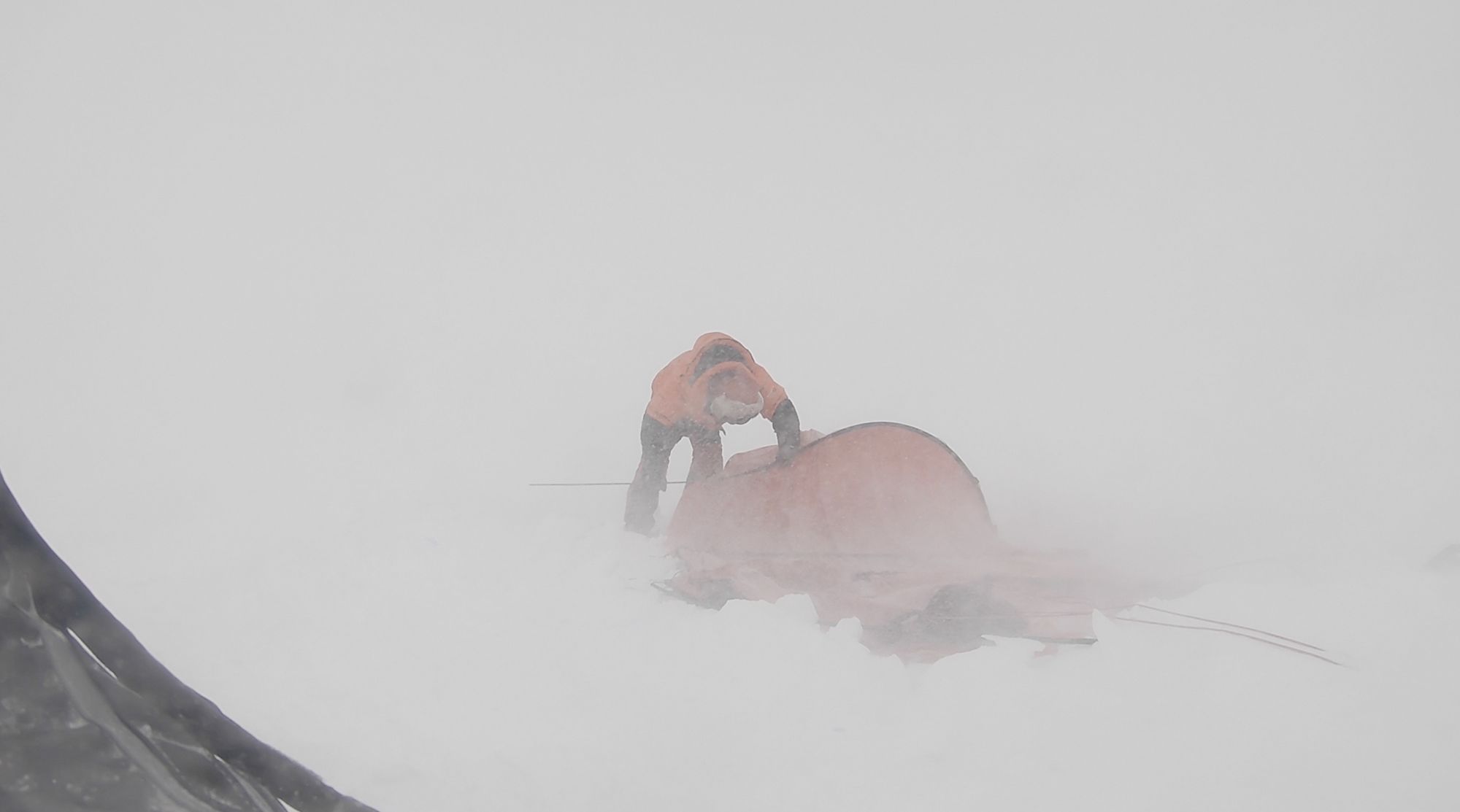
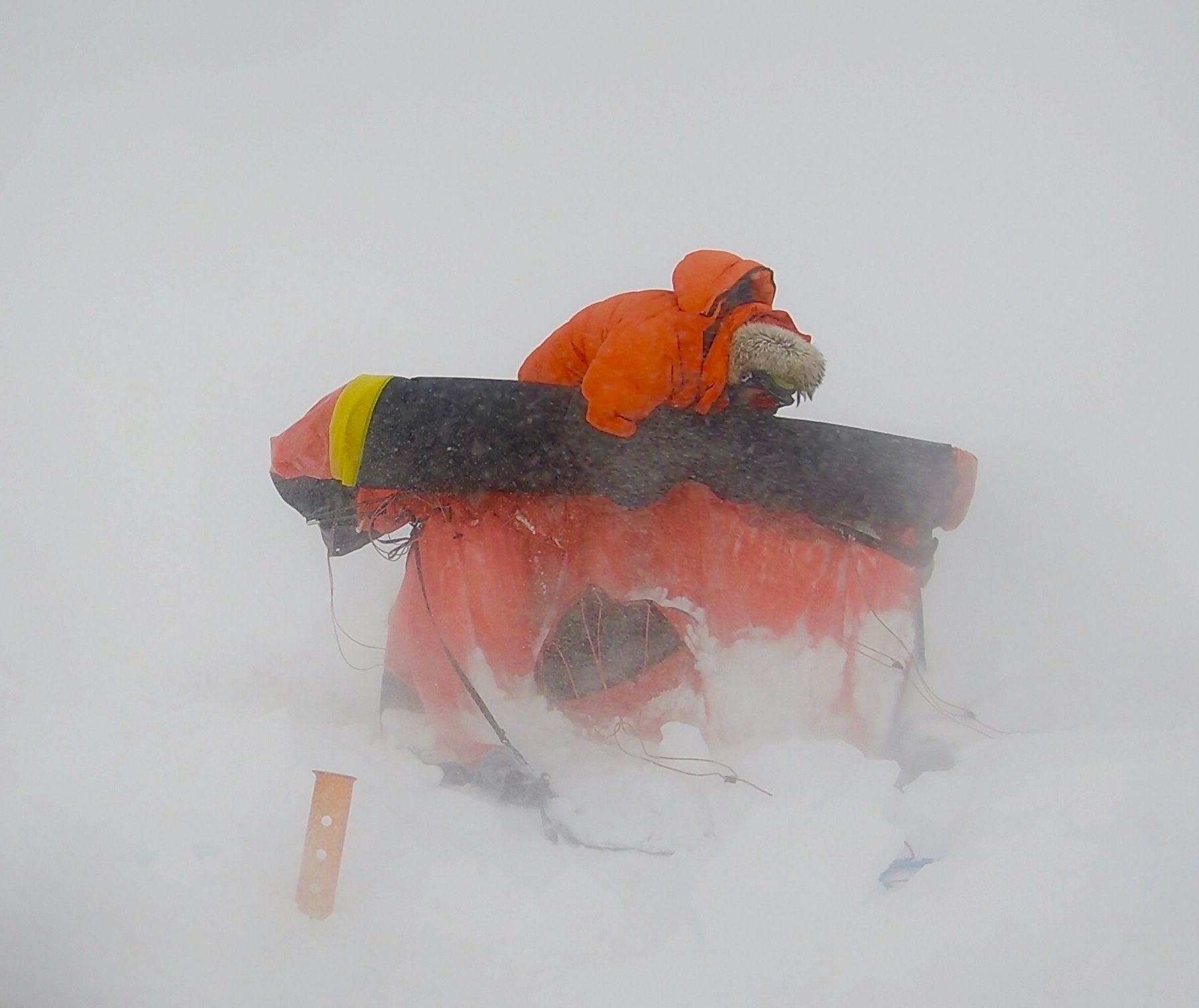
Colin O'Brady: I think a lot of this is iterative from other adventures and other expeditions that I've done before and there's certainly a step into the unknown of things I haven't done before. Lou Rudd, who I have a great deal of respect for and camaraderie with at this point had done two major expeditions in Antarctica previous to mine, with his expedition with Henry Worsely in 2011 and his traverse with his six army mates (including a resupply) at the South Pole. He's put that time in Antarctica. I only had one very much shorter expedition in Antarctica just covering the last degree in 2016, and I've been to the North Pole, so both of those gave me a little bit of that specific polar experience. But after the 50 High Point and before Antarctica, I also did a crossing of Greenland, with the exact purpose of testing all my gear and testing all of my systems.
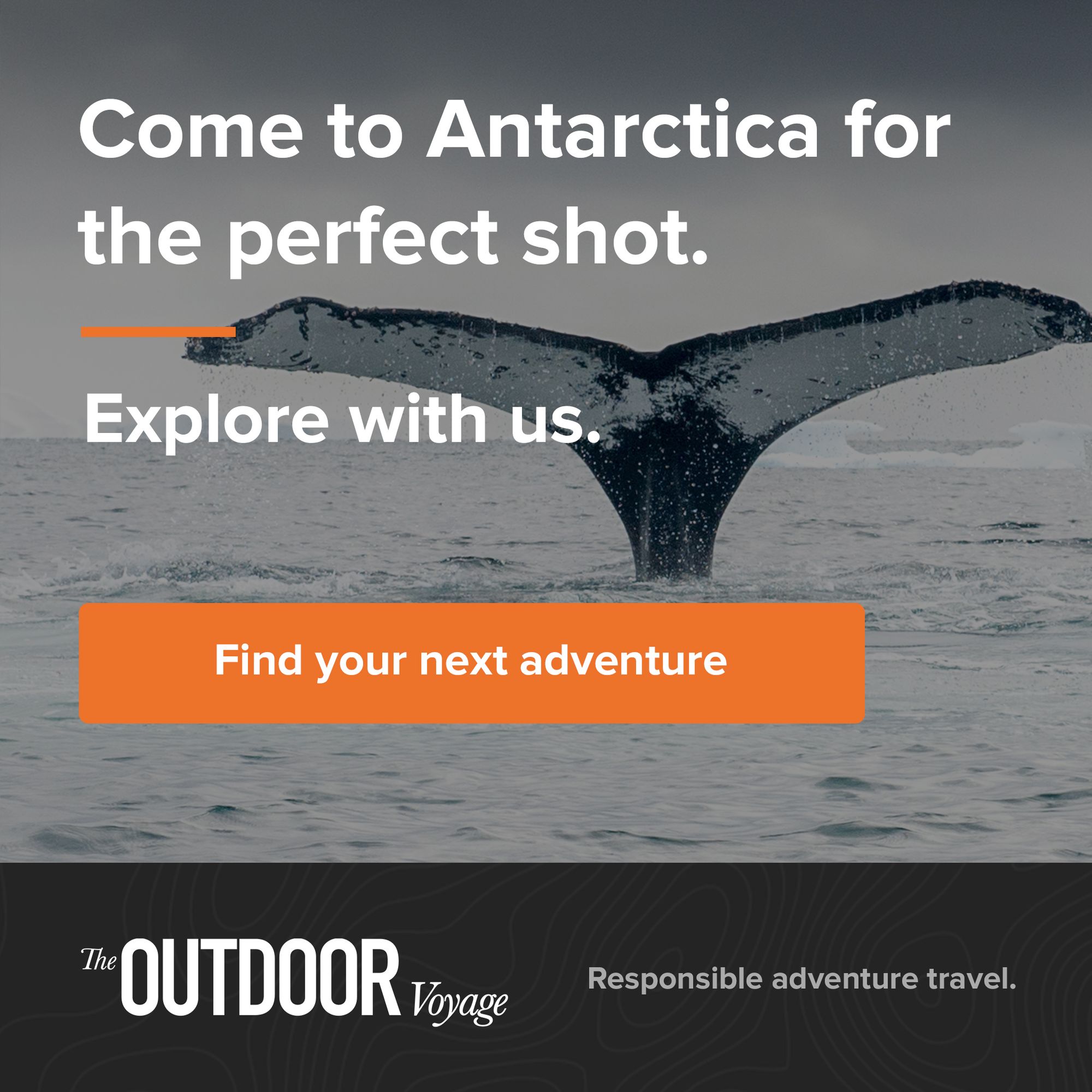
My entire mountaineering and adventuring career has been learning from other people around me. As a kid, I loved to climb. I had some family friends who were Outward Bound instructors and I always liked going out in the mountains with them and asking them a million questions. How do you carry your pack? How do you light the stove? And now I love to pass down a lot of those skills to other people who are excited about getting outside.
TOJ: Your story reads like a superhero comic book (or perhaps the movie Unbreakable) where you suffered an accident in Thailand with burns over 25% of your body, then you were able to recover and start racing triathlons and then keep pushing yourself further and further. How much strength did you gain from your recovery experience and what kind of transformation did you go through? If you had not had the accident, would you be doing the Antarctica crossing?
“The pain, both physical and emotional trauma, that I experienced was so severe that I wouldn't wish that on my worst enemy.“
Colin O'Brady: It was a hugely pivotal moment in my life being burned in that fire and the ultimate recovery. On one hand, the pain, both physical and emotional trauma, that I experienced was so severe that I wouldn't wish that on my worst enemy. That said, coming through the other side of that, particularly surrounded with my mother who put this positive energy reverberating around me at the time and dared me to set a goal, which ultimately ended up in me winning my first triathlon and my professional athletic career as a result of that.
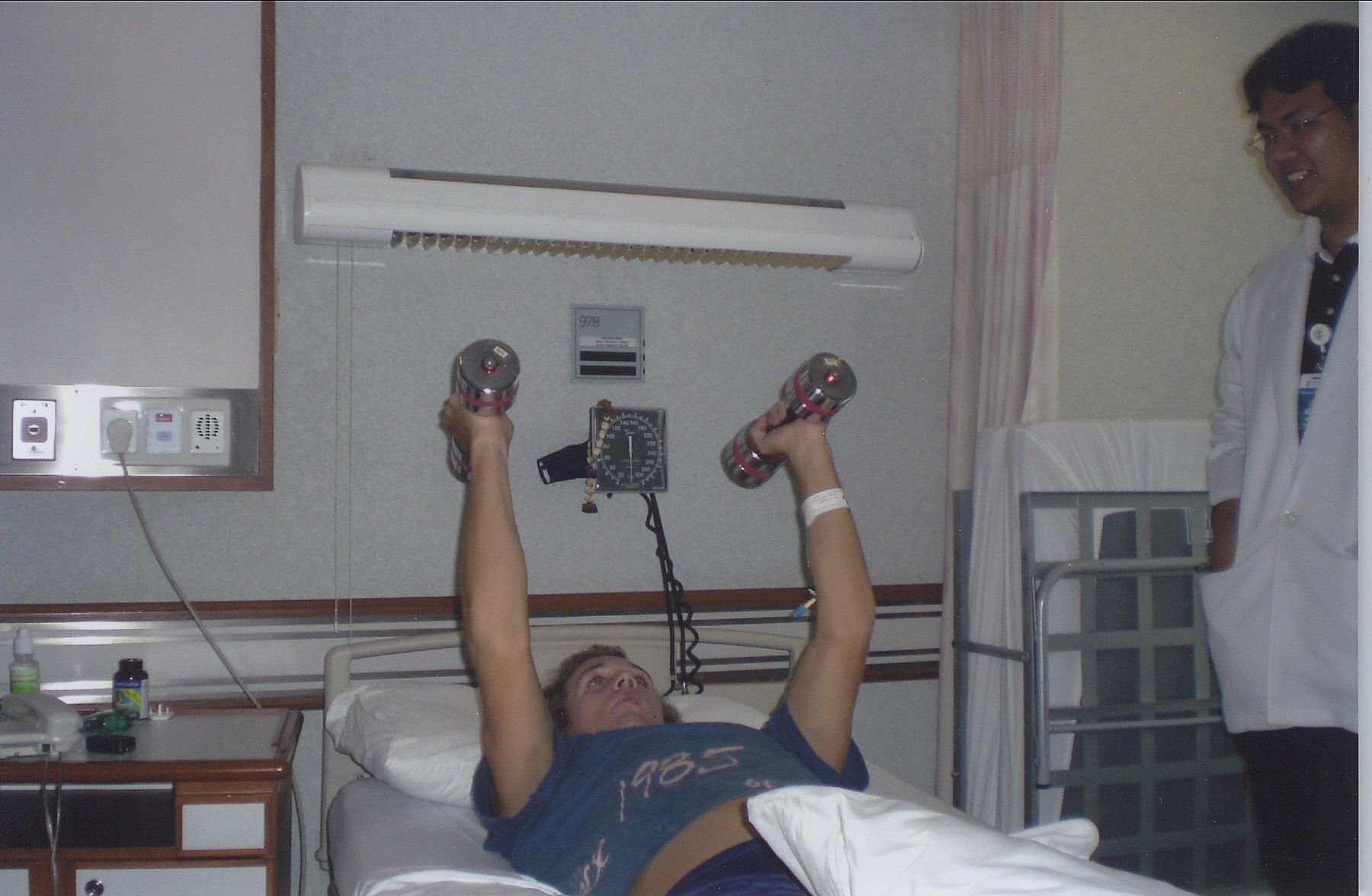
“As humans, we have these reservoirs of untapped potential inside of us and we can achieve such amazing things.”
In that moment when I won that triathlon 18 months after being told I would never walk again, this feeling overcame me like, “Wow, as humans we have these reservoirs of untapped potential inside of us and we can achieve such amazing things.” And it gave me this inner strength to realize that no matter how bad a situation is, mentally, physically, emotionally, etc., that if you keep putting one foot in front of the other, you can really achieve extraordinary things. I don't think that I'd be doing these expeditions necessarily because life would have gone in a different direction had I not been burned in that fire.

Out there in the middle of Antarctica, with the wind 60 miles per hour, with minus 25, minus 30 ambient temperature which makes the wind chill something ridiculous like minus 75 or something, and still getting out of my tent everyday to pull my sled 12 plus hours, there's this mantra that I have, which is this, “This too shall pass.” I remind myself, you were burned, lying in a hospital and told you would never walk again. Now you're out here doing this. The impermanence of all of those challenging moments allows me the mental strength and fortitude to keep pushing in the hardest moment and realize that there's relief and success on the other side of that persevering.
TOJ: Do you mentally transport yourself back into that mindset when you're out on a challenge?
Colin O'Brady: I definitely remember distinct moments, not only in Antarctica, but also climbing in the Himalayas and on my multiple Denali ascends. When it’s getting really hard. I can recalibrate. I'm like, “This is super hard, but man, this is not the hardest thing you've ever gone through before.” And I pictured myself in that hospital bed screaming, writhing in pain, being so far away from home in that unsanitary hospital. I’ll know that this is a tough situation right now depending on how cold it is or how windy it is or how tired I am, but I’ll know that I’ve gotten through worse.
TOJ: When you were breaking down this challenge of crossing Antarctica and doing the math of how much food you needed to carry and how many miles you needed to cover each day, what made you believe that it was possible to accomplish and how much margin of error was there?
Colin O'Brady: I’ve been thinking about this project for a couple of years and I really started focusing on it when (my wife) Jenna and I submitted to doing all the steps to prepare for it about a year ahead of time. And when we sat down together to think through the challenge, certainly something that people have written about, is this possible after Henry Worsely passed away, after Ben Saunders failed by running out of food, is it even possible to do this challenge? Really it's kind of a big math equation. How heavy of a sled can you pull for how big of a distance? At a certain weight, your sled would be too heavy in the beginning because you're not getting resupplies so you wouldn’t be able to even move it at all. How many calories are going to be burned? What are the necessities in addition to food and fuel that need to be in the sled?
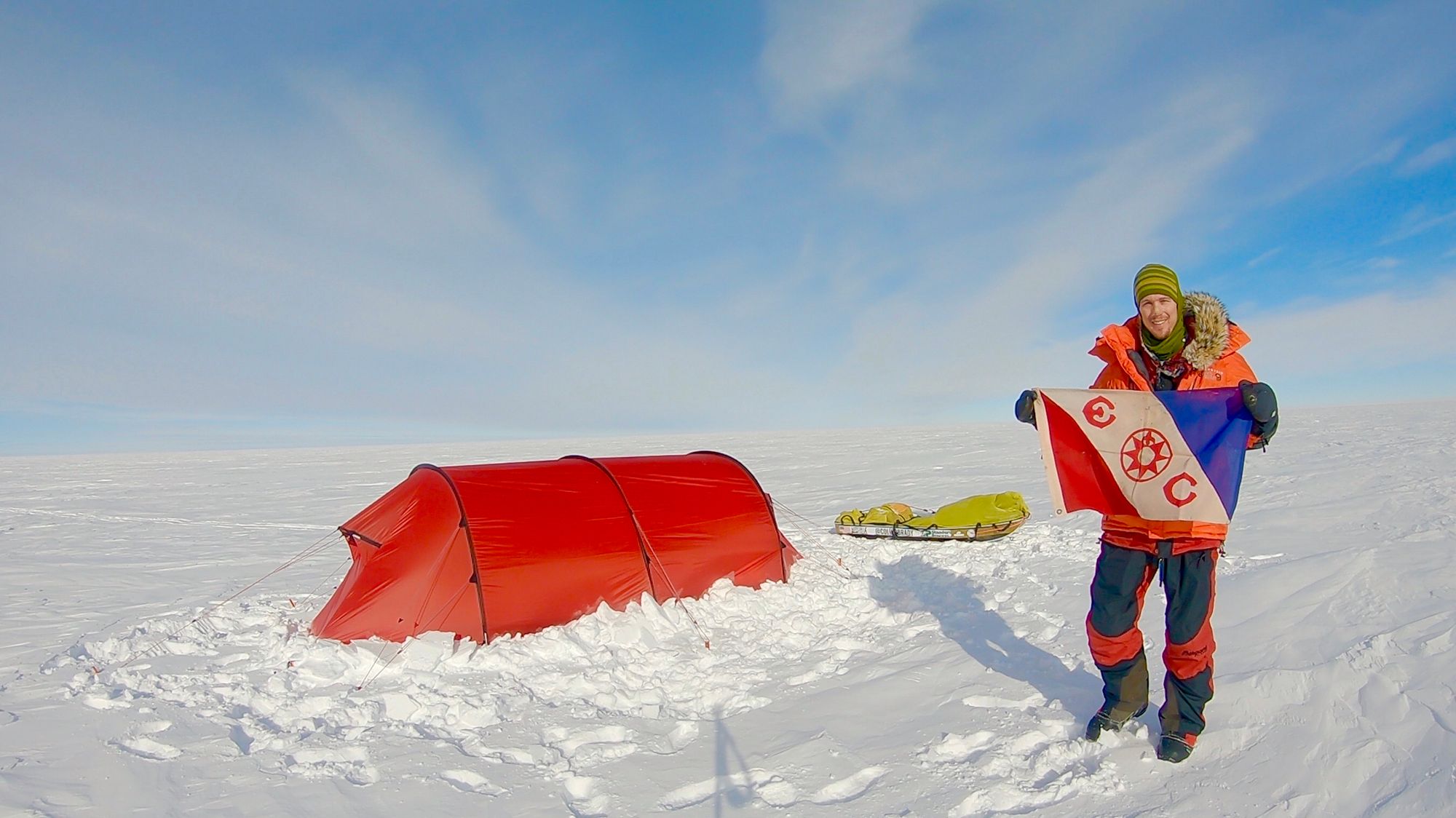
We approached it in a really analytical way and to be honest, when you run the math on it, the reason I think it has been said, at least previously, that it wasn't possible is that the margin for error is really slight. You cannot bring a lot of extras. I didn't even bring an extra pair of underwear because an extra 100 food calories in my sled made more sense to me than any extra creature comfort that I could have out there.
When I finished the project, I had very little extra food and fuel. I probably could have stretched it a little bit longer, but it's not as if I had several weeks of margin for error. And I didn't take a single rest day throughout. So if you add in one or two rest days, which can be totally normal to do, you're not looking at much excess at all.
TOJ: When you bumped into Captain Rudd beforehand, did you guys make any sort of gentleman's bet about turning each of your separate endurance challenges into a race?

Colin O'Brady: No, I think it's just an implied race. Before the project, we both were very publicly saying we intended to be the first person to make this crossing and there's only one season to be able to do this, and one logistics operator facilitating, it was very clear that we were going to be starting on the same day in the same location. So the race element was implied. Not only were the two of us racing history, trying to be the first in history after other failed attempts, but of course, since we were both out there at the exact same time, it was going to be a head to head race.
TOJ: If Captain Rudd wasn't there, do you think you still would have attempted that ultra-marathon push at the end, covering the last 77 miles in 32 hours?
“As someone who is fascinated by finding and stretching the limits of human capacity and potential, I decided to commit to that and go for it.”
Colin O'Brady: Oh, absolutely. One hundred percent. That last push was not really a function of Lou being out there. At that point, I was about 30 plus miles ahead of him with only a few days to go and I'd been ahead of him since day six. I'd been ahead of him for nearly 50 days at that point and felt pretty confident about my lead, assuming I could keep moving relatively full days if you get to the end. That final push was more a function of me trying to push my limits and see where the limit of my own capacity was and I didn't really plan for it at all. I just woke up that morning on Christmas morning and said, “Maybe I should push a longer day because I thought I had three days remaining.” I thought at my normal rate I could do it in two days with two really big pushes if the weather holds and if my body holds up to it. And in the first hour, I got locked in and it hit me, “What if I didn't stop at all?” Is it possible to keep pushing all the way to the end? As someone who is fascinated by finding and stretching the limits of human capacity and potential, I decided to commit to that and go for it. And sure enough, 32 hours and 77 miles later, I found myself crossing the finish line.
TOJ: Although you and Captain Rudd each did your own journey solo, do you feel that you formed a special bond with each other? You waited an extra two days after your finish for him even though you could have been in a hot shower and fresh clothes two days earlier.
“When we were finally flying back to Punta Arenas, we were able to move past the competitiveness of this and look each other in the eye and acknowledge what we both accomplished.”
Colin O'Brady: Absolutely. We didn't know each other before this and we didn't meet until the day before flying down to Antarctica. And given the competitive nature of the environment and the quote-unquote race, there was certainly a competitiveness to the both of us. But when I finished 54 four days into my journey on December 26th, I had the opportunity to call up the logistics operator and try to get a plane out of there immediately. After being tired and low on food and exhausted and all of that, certainly, there's an appeal to just being done. But that never really crossed my mind. I was really clear. I wanted to wait at the finish line for Lou to complete his crossing, which he did about two and a half days after I finished, so I could share this moment with him and have him be the first person that either of us see because there's seven billion people on the planet, but he's the only other person that has completed this specific crossing in this traverse. I have the utmost respect for him. He's an extraordinarily accomplished polar explorer. To have this bond and the comradery of doing this is great. By the end of it, when we were finally flying back to Punta Arenas, we were able to move past the competitiveness of this and look each other in the eye and acknowledge what we both accomplished.
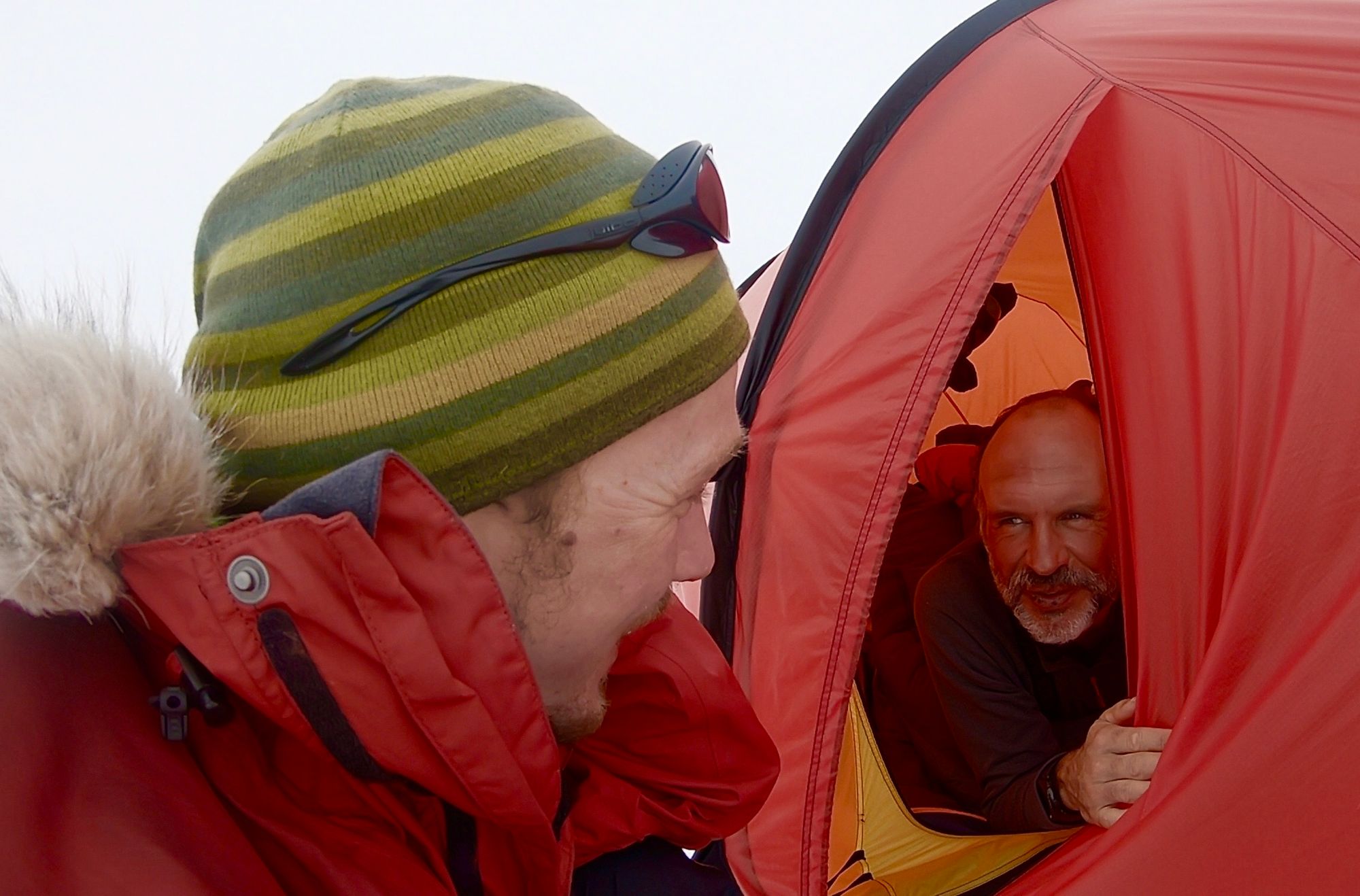
TOJ: Besides Captain Rudd, who are some of the other explorers from previous generations that you've looked up to for inspiration?
Colin O'Brady: The day after I finished the project, while I was waiting for Lou, I made a post on social media entitled “Standing on the shoulders of giants,” acknowledging a lot of people that have inspired me over time.
https://twitter.com/colinobrady/status/1078455980109619200
Of course, there's the turn of the century pioneering polar explorers, which I'm just in constant awe of - Amundsen, Scott and Shackleton in that era.

And then moving more into the modern era with Børge Ousland, Dixie Dansercoer, Dixie is a dear friend of mine. He helped mentor this project. He’s done incredible things and taught me a lot over the years.
Ryan Waters happened to be at Union Glacier right when I finished and he and I have known each other over the years from being in different places around the world doing adventures.
And certainly Felicity Aston, I've never met her, but her traverse, although it was supported, was really pioneering in 2012.
TOJ: What were some of your most difficult and challenging days? I talked to Captain Rudd and he said if he had to plan it again, he would have definitely not gone on the South Pole Overland Traverse (SPOT) because the way that the snow was filling in it was actually a pain. But it's got to be frustrating to see some of the other explorers say that the SPOT is groomed by big vehicles and has some markings which might actually take away from your record. Can you set the record straight on that?
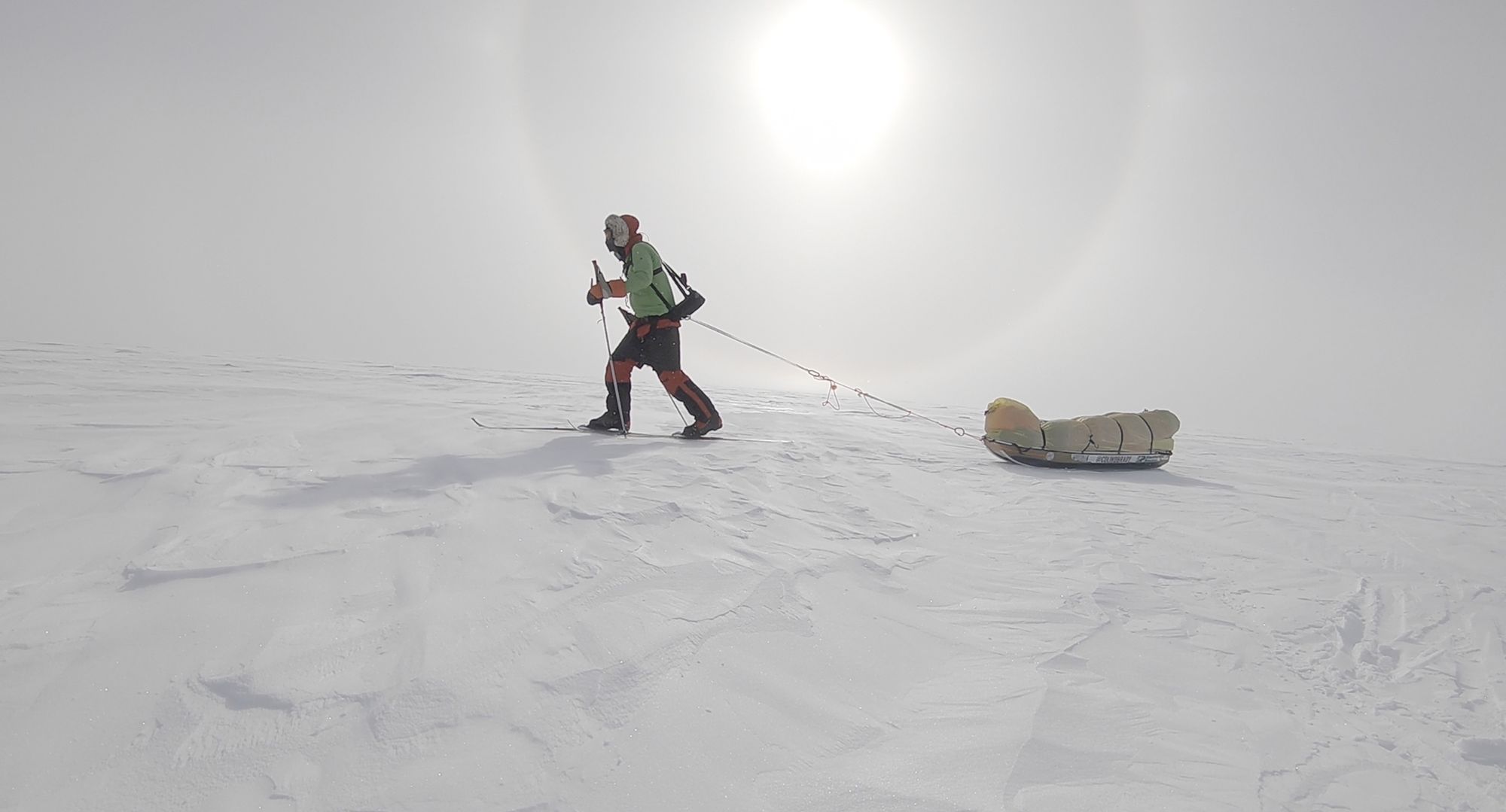
Colin O'Brady: I think Lou said it perfectly and I agree with him that regardless of whether people who weren’t out there want to diminish what we've accomplished, for me, I just smile and move on. I know what I accomplished is something that no one in history has ever done, and to echo what Lou said, with the way that the wind was blowing and the drifts and the whiteouts, the rutted up ground on the SPOT in a lot of ways made it even more challenging.

In the same way that Felicity Aston has been widely recognized for what she did in 2012, to go up the Leverett Glacier, we did the same thing, just in the opposite direction. But she received two resupplies. No one during that time was diminishing her accomplishment. She's written a book about it. She's been praised as the first woman to traverse the continent, as she should be. It's an extraordinary accomplishment. So for me to hear other people's echoes of small criticism, I'd rather just lean into the positivity of the 99.9% of people in the most reputable media sources like the New York Times and National Geographic and CNN, etc. acknowledging this as a great accomplishment. And I know what I did is something unique and special that no one else accomplished before in history.
TOJ: And another point of contention is that in not including the ice shelves themselves, it diminishes the crossing record, but in doing research, I've read on Adventurestats.com that permanent ice doesn't count as the geographic border. And also speaking with Captain Rudd, it seems like it's a matter of plane logistics and also insurance that makes it impossible to land on the ice shelves now, unless you have your own vessel like Mike Horn. Would you agree with that?
Colin O'Brady: The logistics are extraordinarily challenging. I’m not one to say it’s impossible, but man-hauling that distance without the use of kites is very challenging and I hope someone can figure out the logistics and has the physical ability to do that at some point, I will be applauding their success. Not to diminish what either Mike Horn or Børge Ousland, or what some other people have done when they have crossed the ice sheets, I think it's really amazing, but they did so using kites and it's a pretty significant advantage to use kites to propel you. For me, it’s not one project being better than the other or harder than the other, they're all extraordinary, but they're just different. Like using kites to pull you across the distance is very different than what Lou and I set out to do, which was across the landmass of Antarctica using completely our own human power. All of their projects previously are inspiring to me and there's enough room in this world for all these differences to be applauded.
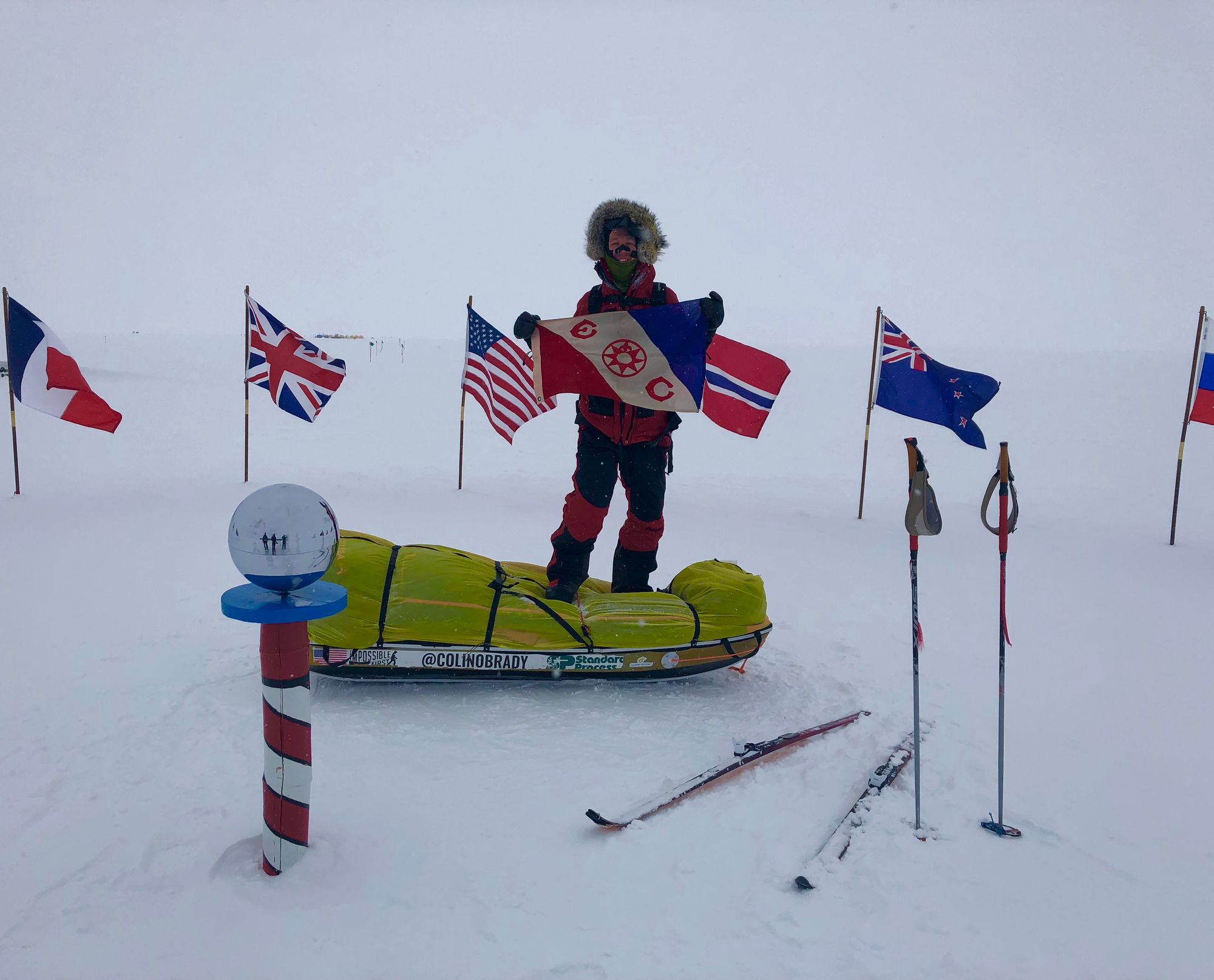
TOJ: You described in one of your interviews a lucid dreaming experience where you got to spend extra time in your own memories, which sounds to me like an Ayahuasca experience where you reflect on your own life. Have you been able to implement those lucid memory experiences and the lessons you've learned once you returned back to your normal life?

Colin O'Brady: Absolutely. I've accessed those types of lucid memories a few other times in my life, mostly during the really long silent meditation retreats where I go in 10 days in the silence - no reading, no writing, no eye contact - and really dive deeply into the mind, which of course was great preparation for this project, which ultimately was like a 54 day walking meditation, silent experience, alone in the middle of Antarctica. Every single time I tap into that wakening lucid dream or flow state or whatever word you want to call it, has been deeply profound because it reminds me that every piece of my life has made me who I am now.
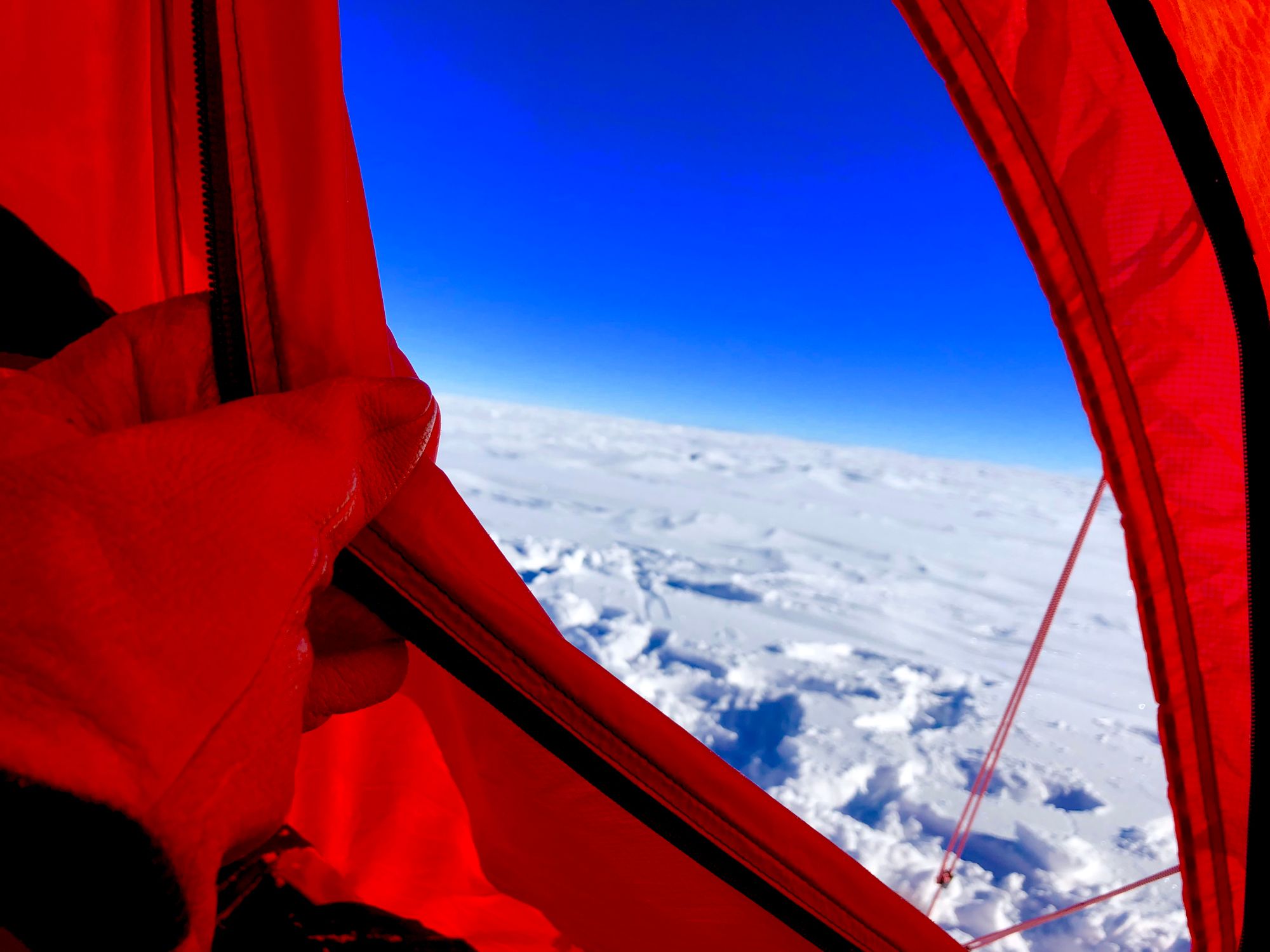
And it also allows me to reflect on different relationships and different experiences in my life and there's so many lessons that I get out of that.

For me, I'm an avid journaler and I’m always reflecting on personal growth. So the most important thing in all of this is not the accolades, not the interviews or the press or anything like that, it's my personal growth and the ability to integrate those lessons into my life in a meaningful way. And hopefully as a result of that, it allows me to have a larger impact across the world to excite and inspire, as I become a more complete person from these experiences as well.
TOJ: Do you see more polar expeditions in your future?
Colin O'Brady: Antarctica is a special place and even the small amount of time that I spent up on the Arctic ocean, in my North Pole expedition in 2016, there's no place like that with the ice moving and shifting. It’s such a unique landscape. I'm still getting home and still enjoying a warm bed and clean clothes, but I can't help but let my mind drift off to amazing memories of Antarctica. Any adventurer will probably tell you about the classic type-two fun - once you're back and warm for a period of time and you start to remember all the beautiful nostalgia of the experience and forget all the hardships and the pain, and before you know it, you're back out there pushing yourself. I don't have anything on the immediate horizon to return for a polar expedition in the next 12 months but I'm only 33 years old and I'm fascinated by exploring these landscapes in unique and different ways and I definitely can see myself back on there at some point.
Visit Colin's website The Impossible First
Twitter: @colinobrady
Instagram: @colinobrady
Stay tuned to The Outdoor Journal for the next installment of our Alone Across Antarctica series.
Whilst you’re here, given you believe in our mission, we would love to introduce you to The Outdoor Voyage - our booking platform and an online marketplace which only lists good operators, who care for sustainability, the environment and immersive, authentic experiences. All listed prices are agreed directly with the operator, and we promise that 86% of any money spent ends up supporting the local community that you’re visiting. Click the image below to find out more.

2nd best newsletter in the universe